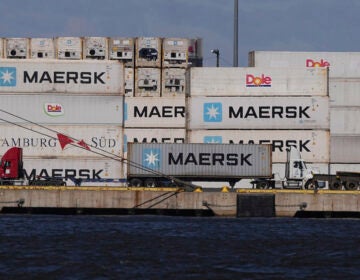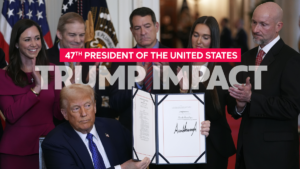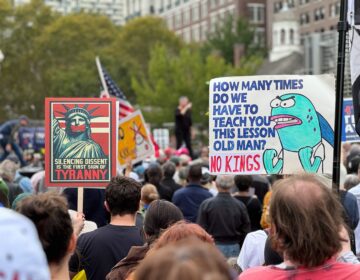Philadelphia-area USPS workers fear a private takeover. Could it happen?
The Trump administration has flirted with the idea of selling the U.S. Postal Service to the highest bidder. Postal workers in the Philly region believe it's a bad idea.
From Delco to Chesco and Montco to Bucks, what about life in Philly’s suburbs do you want WHYY News to cover? Let us know!
James DeRidder, 33, has not received a “What did you do last week?” email from the U.S. Office of Personnel Management — and neither have his 500 unionized co-workers at the Philadelphia Network Distribution Center nor his more than 600,000 colleagues in the U.S. Postal Service.
Yet Philadelphia-area post office workers are on edge. While their current contract has a no-layoff clause, DeRidder said threats to organized labor, combined with the actions of the executive branch, are fueling fears.
“They’re afraid that they might get laid off,” he said.
As a semiautonomous federal agency, USPS has largely been immune from President Donald Trump and billionaire Elon Musk’s plans to substantially reduce the federal workforce. But, outgoing Postmaster General Louis DeJoy signed an agreement with DOGE to allow Musk’s team to find “efficiencies” within the agency.
In recent years, the agency has been under tremendous pressure to radically change course from serving as a public good to operating as a private service. Trump, in particular, has pushed to privatize USPS, arguing it would lower the cost structure and incentivize innovation.
The National Association of Letter Carriers represents more than 295,000 active and retired USPS letter carriers nationwide, including 6,000 in Philadelphia and the surrounding suburbs. Brian Thompson, a national business agent for the union, said privatization would threaten a fixture of American life.
“We do more than just deliver the mail,” Thompson, 53, said. “We’re the eyes and ears out there in the local community.”
In February, Trump proposed merging USPS with the U.S. Department of Commerce. DeRidder views it as a first step toward selling the agency for profit.
“Any attempt to privatize the post office or reorganize it would do severe damage to the services that we provide,” DeRidder said. “Every person that lives in this country — we deliver to over 168 million addresses. No other private carrier services, like UPS and FedEx, do that. We go every single mile.”
As president of the Philadelphia BMC Local 7048 for the American Postal Workers Union, DeRidder acknowledged his predecessors have fought off their fair share of privatization efforts. However, he sensed this moment might be different.
“This is the biggest threat that I’ve personally seen with privatizing the postal service,” DeRidder said.

The history of the U.S. Postal Service — and its Philly roots
Before the Second Continental Congress raised the Marines in 1775, the colonial delegates established the United States Post Office in Philadelphia with Benjamin Franklin at the helm.
The post office served a crucial role in the dissemination of information during the American Revolutionary War.
“That was how you got news circulated from Charleston and Boston and New York to get to Philadelphia and find out what was going on around the colonies,” said Joseph Adelman, professor of history at Framingham State University. “And so it was critically important at that moment that they were trying to create unity among the colonies which sort of existed — and sort of didn’t.”
After the war, the U.S. Post Office Department became one of the first executive departments, explicitly mentioned in the Constitution.
Adelman said over the course of the 19th century, it became the most important branch of the federal government for ordinary Americans because there was a post office in virtually every town. As people began to fan out across North America, letters and postal carriers kept communities connected.
“There are far more post offices and postal employees [in the 1800s] than there are employees of any other part of the federal government,” Adelman said. “So if you’re an American in the 19th century and you’re thinking about the federal government, you’re probably thinking about the post office.”
With the passage of time, partisan politics infiltrated the post office. President Andrew Jackson selected Amos Kendall, a Kentucky Democrat, to be postmaster general. Adelman said they began to use jobs at the post office as patronage.
“Across the 19th century that becomes the norm — that the postmaster general is a member of the president’s cabinet and postmasters of individual towns are liable to be replaced every four years depending on who wins the presidential election,” Adelman said. “John Wanamaker of Philadelphia served as postmaster general in the 1890s in Benjamin Harrison’s administration because he was a major donor as a department store magnate.”
The 20th century brought a series of reforms to create a layer of protection. Meanwhile, businesses began to send out more marketing material or junk mail via the post office, Adelman said.
The Civil Rights Movement saw the removal of discrimination practices at the U.S. Post Office Department, clearing the way for it to become the largest employer of Black people in the country.
Following a series of major post office strikes, President Richard Nixon signed the Postal Reorganization Act of 1970 into law, which abolished the U.S. Post Office Department, created USPS and granted workers a pay raise.
USPS is generally self-funded. It relies on customers buying stamps and mailing items. The agency receives no tax revenue to maintain operations. To this day, USPS reaches addresses across the country that private services don’t view as profitable enough to service.
Adelman said the agency has largely been a self-sustaining entity. However, the Postal Accountability and Enhancement Act of 2006, which required USPS to pre-fund 100% of its retiree health benefits 75 years into the future, pushed the agency “in the red,” he said.
Additionally, there has been a decline in the volume of mail — and revenue — because of a rise in digital communication and increase in competition from Amazon, FedEx and UPS. According to the U.S. Postal Regulatory Commission, USPS delivered 213 billion pieces of mail in 2006. The agency delivered 112 billion pieces of mail in 2024 — a nearly 50% drop.
“Those have been two huge hits to the revenue model of the Postal Service and the law limits what other services they can provide,” Adelman said.
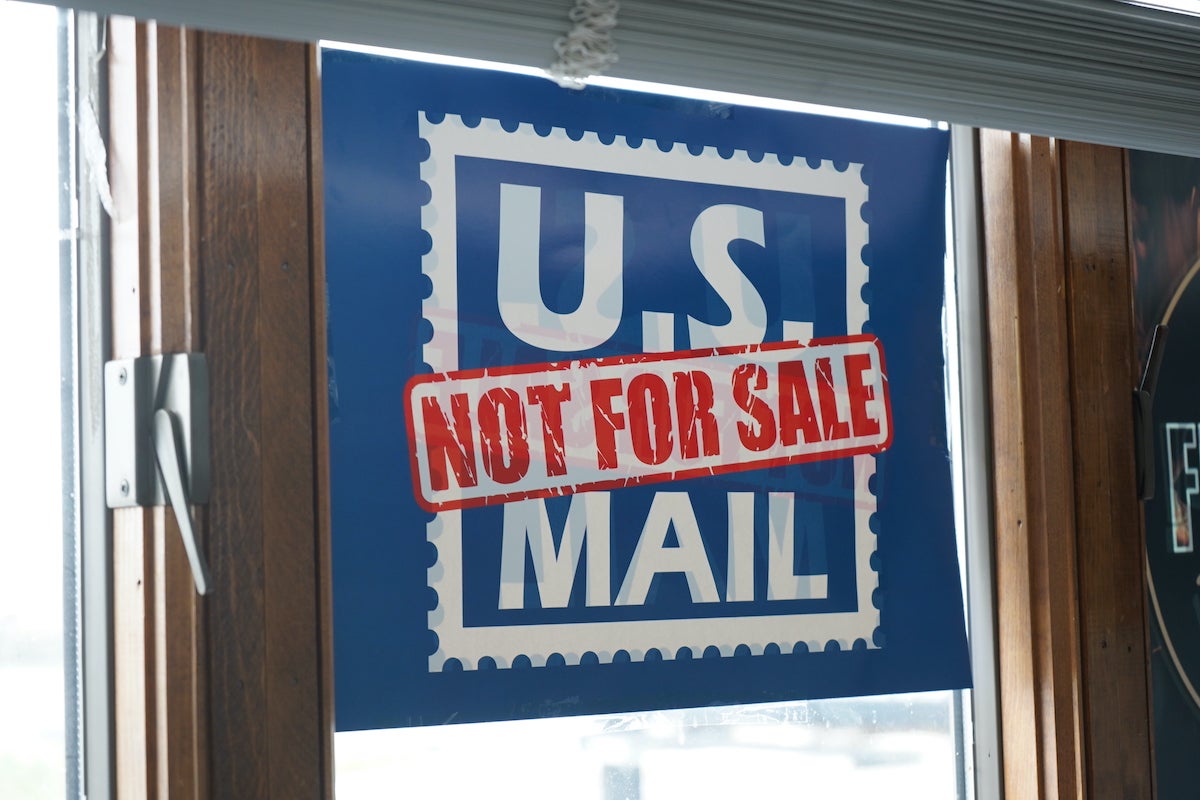
The push to privatize is as old as the service
Efforts to privatize the post office date back to the 18th century.
“There’s a constant tension going back to the very beginning of the 18th century about the extent to which the postal system is a public good versus a business operation,” Adelman said.
The crown expected the British colonial postal system to turn a profit, he said. But, the U.S. Post Office and the subsequent department adopted a different approach.
“They made it very cheap to circulate newspapers. The Constitution gives Congress the authority to establish post offices and post roads, and they did that,” Adelman said. “And every local town out in the west wanted to get a post office because then the government would pay for a road to connect their town to the rest of the national network.”
The Confederate States of America attempted to run their mail system as a business after seceding from the Union.
“They add in, in the Confederate Constitution, that the post office has to run on its own revenues,” Adelman said. “And it’s a terrible decision for the Confederacy in part because the South, the 11 Confederate states, were some of the least profitable portions of the postal system in the mid-19th century.”
President George W. Bush’s administration flirted with the idea of privatizing USPS.
“There are particulars to 2025, there are particulars to the Trump administration and to President Trump’s particular interests in mail service,” Adelman said. “But much of this is being fueled by a much longer conversation about postal systems and what functions they should serve.”
An ongoing debate over USPS privatization
Although USPS pays for itself, Jeffrey Miron, vice president of research at the libertarian-aligned Cato Institute, said Congress has given the agency taxpayer money to relieve USPS of some of its financial issues.
Some countries have already moved on from their postal assets. Britain sold its remaining stake in Royal Mail in 2015.
“The success of carriers like UPS, DHL, FedEx and others shows that a purely private service can be very effective,” Miron said.
The Heritage Foundation, the Washington D.C.-based conservative think tank behind Project 2025, has long argued in favor of privatizing the mail system.
“What privatization would do would be a way to get market signals that would help find out what’s the most efficient level of service,” said Parker Sheppard, research fellow at the foundation.
Nothing is done in secret, DeRidder said. He read Project 2025, which has served as a road map for the Trump administration. The lengthy document calls for politically shaking up the National Labor Relations Board.
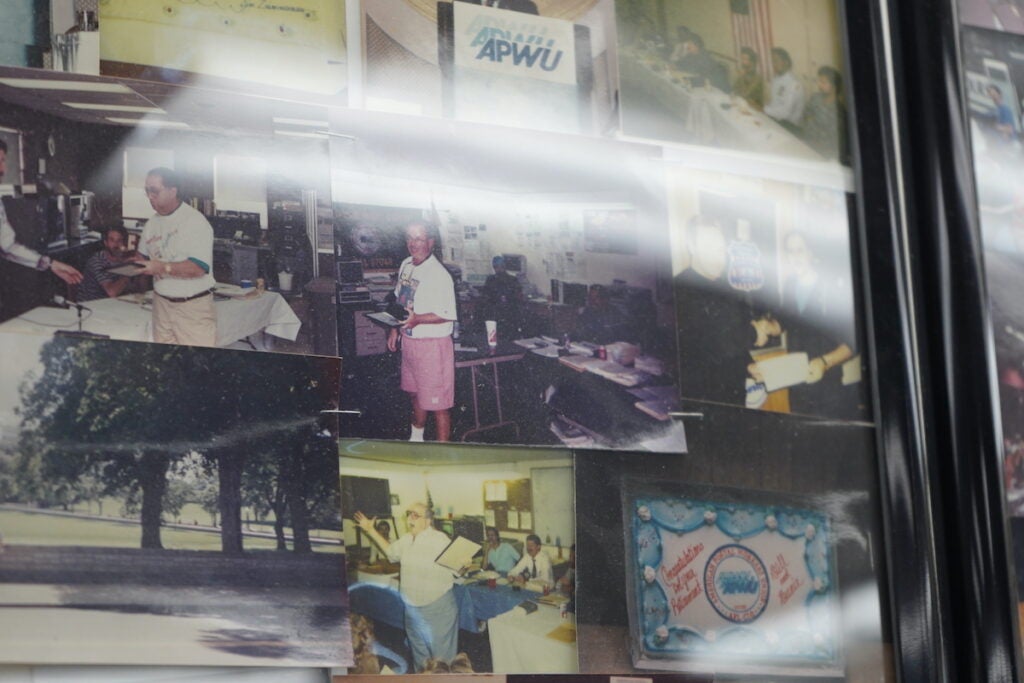
“Obviously, it was no secret the blueprint going into this prior to the election and going into the last election was that they wanted to wage a war against the working class,” DeRidder said.
Sheppard said privatization would be a good business decision to offset existing financial obligations. Pointing to USPS assets across the country — its many delivery trucks, offices and revenues — Sheppard said in order to be spun into a private entity, the government would just have to find a group of investors with the capital to operate it.
“It would be left to its own [devices] to generate revenue just as any other carrier business,” he said.
Sheppard acknowledged the ability of USPS to reach rural areas of the country; however, he said, “There’s no way around the cost of delivering mail to those places.”
“The question about privatization is separate from a question about, ‘How are those costs going to be paid?’” he said. “So you could still spin off the Postal Service as a private entity and then have Congress decide separately that they want to subsidize service to rural areas. That question is independent of privatization.”
DeRidder disagrees.
“We deliver mail and provide services to people that live in rural areas that aren’t profitable for the businesses to do that, for the Postal Service to do that, because every person has a right to receive medications, financial checks, like Social Security [and] disability checks, important financial documentation that they got to send out,” DeRidder said.
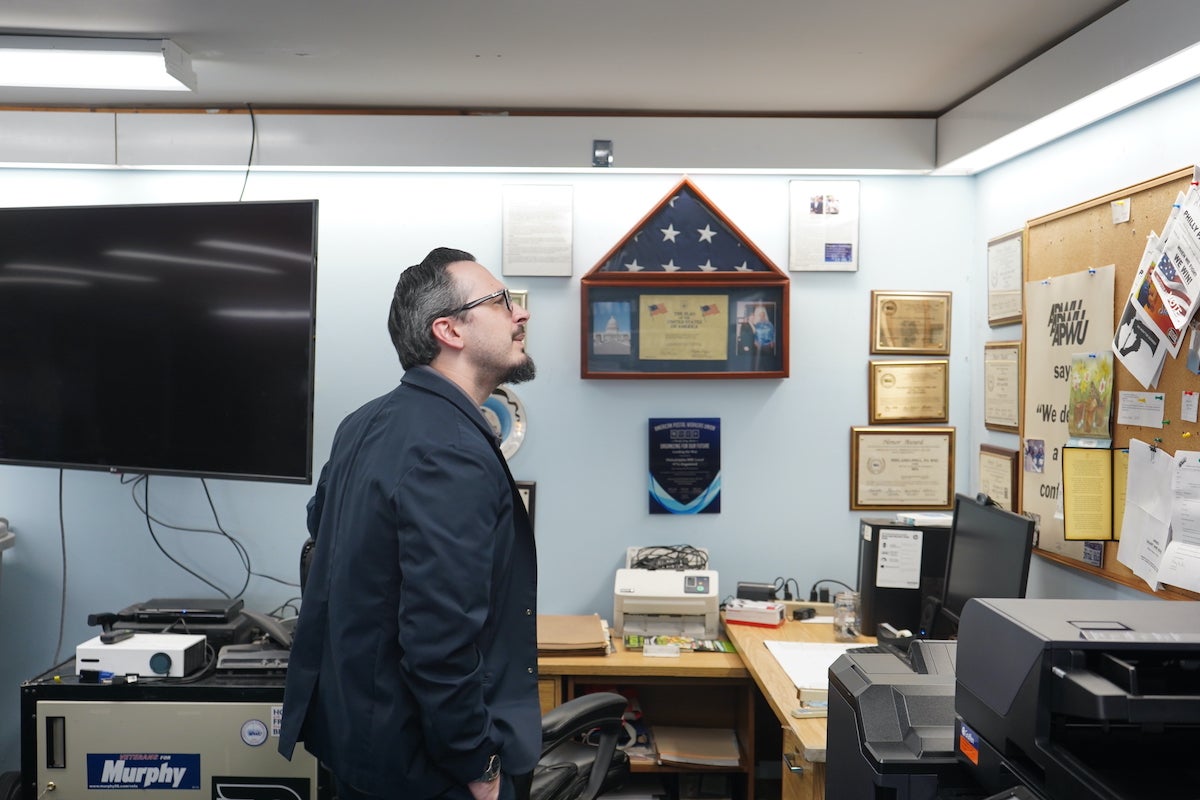
What will happen to USPS?
Hillary Bloom, 59, remembers her excitement receiving a birthday card in the mail as a child. The Haverton native said her use of the post office “ebbs and flows.” However, she’s used the generosity of her neighbors to stockpile clothes and goods for a friend in Florida who fell on hard times.
“I’ve sent things that have been very awkward sizes that if I were to do it through UPS or FedEx or any of these other private shipping companies, it would have really cost a lot more than what the post office charged to send these different boxes,” Bloom said.
She called privatization, like many of the ongoing or proposed cuts, a “bad idea.”
“There’s a lot of people who work at the post office in various capacities and a lot of people are going to end up losing jobs, and that doesn’t help anybody,” Bloom said.
USPS is one the largest employers of veterans in the country, with more than 73,000.
Thompson, from the NALC, started as a noncareer employee carrying mail in 1992. He eventually was hired as a clerk in New Castle, Pennsylvania. He returned to carrying mail from 2004 to 2016. He said he enjoyed being outside and talking to community members.
“We’re part of the community, and we look and take care of the community,” he said, pointing to various instances of USPS letter carriers spotting trouble along their routes and lending a helping hand.
The NALC named Brian Meyers Sr., of Johnstown, Pennsylvania, its Eastern Region Letter Carrier Hero of the Year for taking down a man who was stabbing another — all while he was delivering mail.
There’s no doubt in Adelman’s mind that the public would lose the concept of “universal service” if a private company takes over the post office.
“In a lot of rural areas of the United States, the post office is still a gathering space for people,” Adelman said. “And the U.S. Postal Service is committed to universal service, to delivering to every zip code and every address in the United States.”
Adelman said Congress has the authority to decide the fate of USPS. In March, a bipartisan group of senators introduced a resolution to “take all appropriate measures to ensure that the United States Postal Service remains an independent establishment of the Federal Government and is not subject to privatization.”
Following a Social Security rally in the city of Chester, U.S. Rep. Mary Gay Scanlon likened privatizing the post office to the sale of Crozer Health in 2016 to for-profit Prospect Medical Holdings.
“When you privatize a public service, you are no longer making it a public service,” Scanlon told WHYY News. “Someone’s going to get a cut. It’s certainly top of mind here in Delaware County where private equity took over the major hospital system and gutted it for private profit, and now we’re struggling to keep a hospital system up and running — similar concerns with respect to the post office.”
Sen. Cris Coons, D-Delaware, said USPS, like Amtrak, is a “unifying piece of national infrastructure” that provides jobs and connects communities.
“I worry that in the long term, if we fully privatize rail service and we fully privatize postal service, that there are communities and customers that will be left behind, and we will enrich the investors in these private entities by giving them the infrastructure that’s been invested in and built up over decades by the American taxpayer,” Coons said.
Despite energy in Congress on both sides of the aisle to preserve the Postal Service, there’s also inertia on the side of privatization.
“I’m a historian, not a futurist, so I get nervous about predicting the future,” Adelman said.

Get daily updates from WHYY News!
WHYY is your source for fact-based, in-depth journalism and information. As a nonprofit organization, we rely on financial support from readers like you. Please give today.



